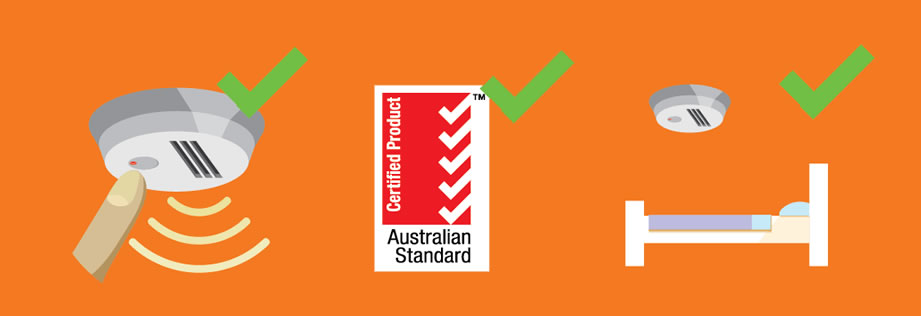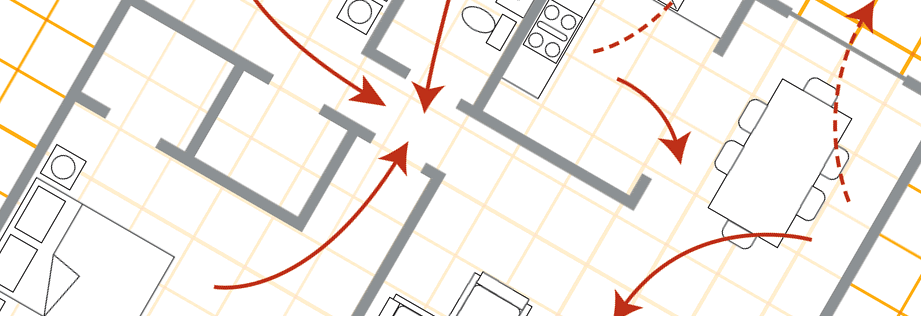Fire and Rescue NSW research identifies critical factors in fatal house fires - NSW
Published: 28 Apr 2023 08:38am
Knowing what to do in the first five minutes of a house fire is critical to saving a life, according to new research released today by Fire and Rescue NSW (FRNSW), which shows that while accidental house fires are less frequent, they are becoming more lethal.
The Adverse Fire Outcomes Report used predictive analysis of 30,891 FRNSW structure fire reports from 2016-2021 to identify risk factors of structure fire fatality, preventable fatality, injury, evacuation, and fire extension.
These fires led to a total of 109,592 persons evacuated, 2,346 injuries, and 88 fatalities, of which 52 were deemed preventable. Fire extended beyond the room of origin in 5,417 incidents.
The report reveals important findings to inform strategic direction and resource allocation at FRNSW, including:
- Accidental structure fire fatalities over the last six years have increased despite a reduction in fires.
- Response time is a critical factor in saving lives, preventing injuries, and mitigating fire extension.
- When a structure fire extends beyond the room of origin, the odds of fatality increase 4.3 times.
- When structure fires occur at night, the odds of fatality increase 1.8 times.
- Hoarding is a significant concern with increased risk factors of fatality, injury, evacuation, and fire extension.
- Programs need to educate the community about what to do in the first five minutes of a fire.
FRNSW Field Operations Deputy Commissioner Jeremy Fewtrell said early identification of shared risk factors at a residence provides an opportunity for prevention education and targeted intervention.
“FRNSW has a legislative responsibility to prevent structural fires,” Deputy Commissioner Fewtrell said.
“The report shows risk is complex and multi-faceted and there is no easy solution. Yet, the more we know about factors contributing to fire fatalities, the better we can target resources and prevention programs and inform evidence-based decision making.
Deputy Commissioner Fewtrell said a fire can take hold in a matter of minutes, yet it takes only seconds to prevent one.
“Every winter you are at greater risk of death or serious injury from a fire starting in your home. We know response times matter, but you can help us help you by ensuring you have a working smoke alarm and when there is a fire, get out and stay out.”
An extensive list of recommendations is included in the report which address the following key areas:
- Contribution to knowledge
- Data linkages
- Incident reporting enhancements
- Further research, and
- FRNSW prevention programs
Deputy Commissioner Fewtrell commended the report authors and acknowledged Monash University Accident Research Centre for its generous assistance and expertise in peer reviewing the research.
“I look forward to seeing the report’s recommendations implemented across FRNSW in support of our efforts to improve the safety and resilience of the NSW community.”
Updated: 16 Aug 2024 12:38pm
Related safety topics
It“s the law to have at least one working smoke alarm installed on every level of your home.
Having a home escape plan and a working smoke alarm increases your chances of getting out safely.

Most people have a plan for what they will do during a bushfire. Unfortunately, not every plan will withstand the test of a bushfire. Take 5 minutes to improve or make a plan at www.myfireplan.com.au [external link]
Details about this incident may change and should not be used as emergency information and/or advice.
For all life threatening emergencies, call Triple Zero (000)
For flood information, warnings or requests for non-life threatening assistance, call the SES on 132 500 or visit the NSW State Emergency Service website here. [external link].
For information directly relating to bushfires please call the Bush Fire Information Line on 1800 679 737 or visit the NSW Rural Fire Service Website here. [external link]







